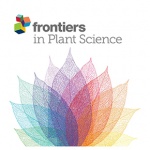Balanced Options for Access and Benefit-Sharing: Stakeholder Insights on Provider Country Legislation
Front. Plant Sci., 01 October 2019
The over-arching aim of the access and benefit-sharing (ABS) of genetic resources is to enable fair distribution of benefits between the users (such as universities and biotech companies) and providers (such as biodiversity rich countries) so as to both open the doors for innovation and create incentives for biodiversity conservation. Access to genetic resources is crucial for research related to conservation of plant genetic resources as well as R&D for agricultural products and evolved crops that can attain to the new weather conditions climate change brings. Therefore, access to genetic resources in general as well as benefit-sharing from that access is a key element for sustainable development in order to secure research as well as environmental sustainability and resource availability. ABS is currently a rapidly developing and evolving field that is shaped by each and every implementation of the Parties. This means that the national implementation of the Parties determine how ABS goals are realised and how ABS principles find form within regulatory mechanisms. These principles are found in international legal documents such as the Convention on Biological Diversity (CBD) as well as Nagoya Protocol. Additionally, decisions and guidelines drafted by the Conference of the Parties to the Convention on Biological Diversity shape these principles that are then to be fulfilled by the Parties when drafting their ABS laws by means of implementing regulatory mechanisms that comply with the international law. This article reviews 20 provider country’s ABS frameworks as well as one regional law with the aim of identifying the common regulatory mechanisms that find place in these legal texts. This descriptive approach is then followed by an empirical comparative analysis through semi-structured stakeholder interviews in order to identify the most beneficial regulatory mechanisms according to ABS experts that belong in four different stakeholder groups (provider countries, academic users, industrial users and collections)

